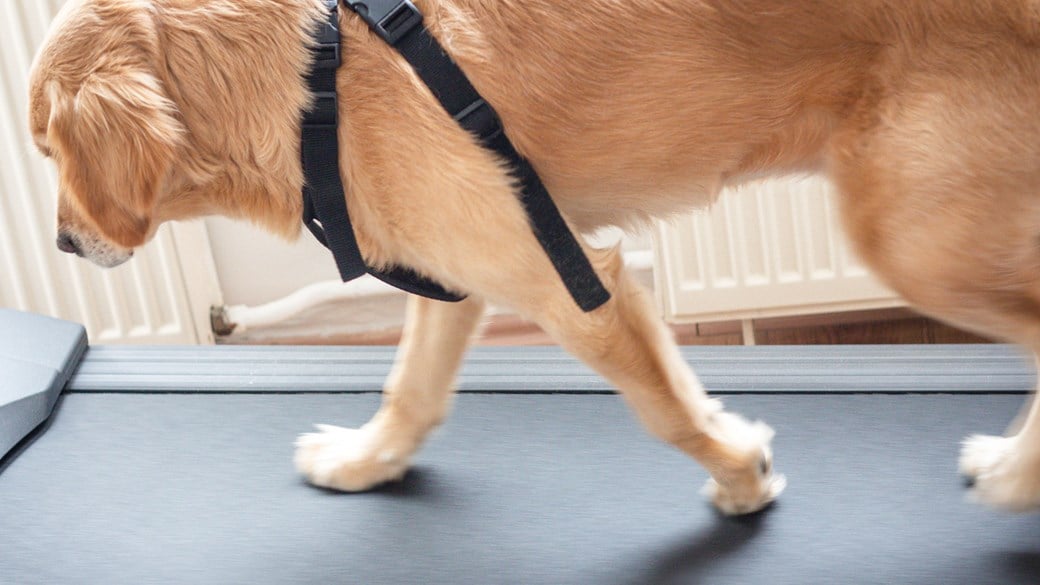
Physiotherapy
All pets can benefit from physiotherapy. It’s non-invasive and easily accessible.
Physiotherapy has been shown to improve health outcomes in both animals and in people. Problems involving the musculoskeletal, nervous systems and balance can be helped by physiotherapy. It can also aid in recovery from injury or surgery and with pain management.
At Vets4Pets, we can arrange for physiotherapy to be part of your pet’s multi-modal treatment plan. This allows a return to optimum mobility, and quality of life, as soon as possible.
Physiotherapists must receive a referral from the patient’s vet before treatment begins. This involves sharing all relevant medical history. This makes sure the treatment is safe and appropriate. It also allows the vet, physiotherapist, and pet owner to communicate during the treatment process. Working as a team allows the best outcome for the pet.
How could physiotherapy help my pet?
It’s widely recognised that treatment outcomes are better for pets who have received physiotherapy after orthopaedic surgery. But did you know there are many other pets that can benefit from physiotherapy?
It can improve recovery times from accidents, surgery or illness. It can also improve life quality and mobility. Pets with orthopaedic problems, (such as hip or elbow dysplasia, osteoarthritis, spinal, neurological, soft-tissue or mobility problems) can all be helped. Physiotherapy can also help the management of chronic pain.
Is physiotherapy just for dogs?
As you might expect, dogs are the most popular patients to be treated by animal physiotherapists. However, cats, rabbits and other pets of all ages also benefit from, and enjoy, treatment.
Physiotherapy can be used even in the care of healthy pets. For example, dogs taking part in sports such as agility and flyball, benefit from regular treatment. It helps them to stay fit and strong, reducing the risk of injury.
Your vet may recommend that your pet receives physiotherapy in preparation for an elective (non-emergency) procedure. This can help maximise mobility and improve muscle strength and balance, which all help with recovery.
What happens at my pet's physiotherapy appointment?
Physiotherapists can use many different techniques to help your pet. These may include clinical massage techniques, a range of movement exercises and manual therapies.
Hydrotherapy (including supervised swimming and water treadmills) may also be recommended. Medical devices can sometimes be used to help stimulate nerves and muscles to work. Specialised equipment can be used which is designed to help your pet re-learn how to use parts of their body following surgery or illness.
A physiotherapy appointment will last longer than a normal veterinary consultation. Your physiotherapist will explain the course of therapy they have planned for your pet.
Depending on your pet’s individual needs, you might expect to bring your pet back for several sessions. They may also recommend an occasional assessment once they have reached a maintenance level of therapy. Your physiotherapist might ask you to do some exercises at home, or to make some suggested lifestyle adaptations, to help your pet's recovery. They will provide you with a written exercise plan or guidance sheet, to help you with this.
How do I access physiotherapy for my pet?
Your local Vets for Pets practice may offer physiotherapy in the clinic. Speak to your vet team to find out.
Alternatively, your vet may already have discussed physiotherapy with you if your pet has been diagnosed with a condition that could benefit from this form of physical therapy. Some surgeries offer physiotherapy as part of their usual services, while others work with visiting physiotherapists who run clinics out of the surgery and see patients individually.
If physiotherapy is unavailable in-clinic, your vet can refer your pet to a recommended veterinary physiotherapist nearby. Many pet insurance policies will help with the cost of physiotherapy, so you could check with your insurance provider whether your pet is covered for it.
Referral services
For all vet referrals, please complete the referral form
